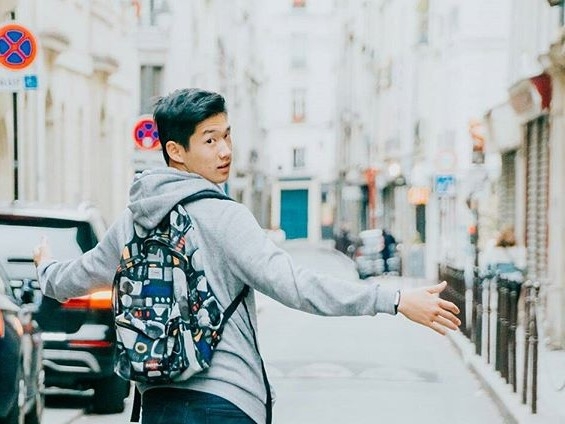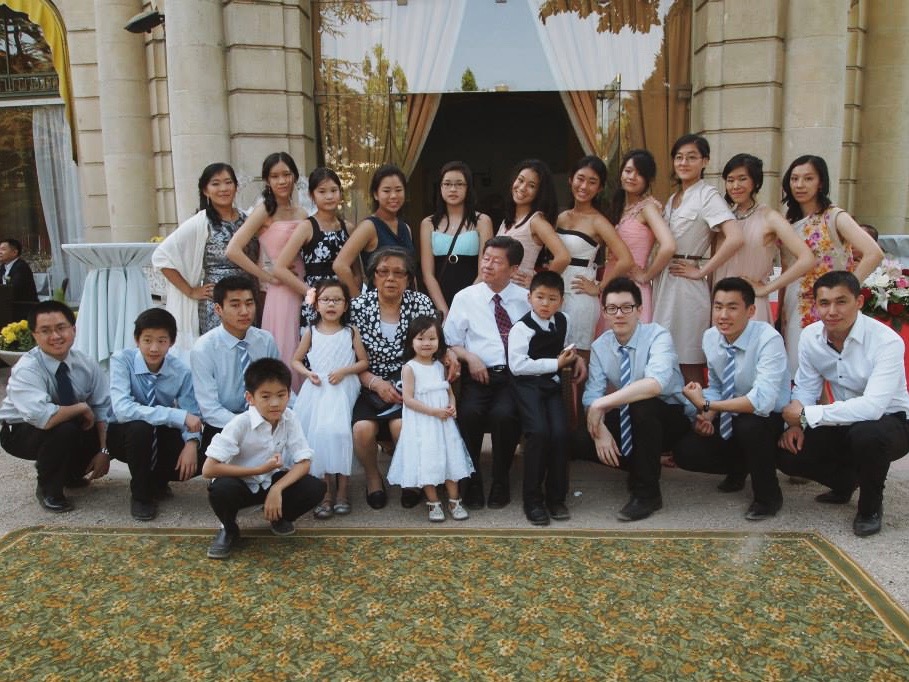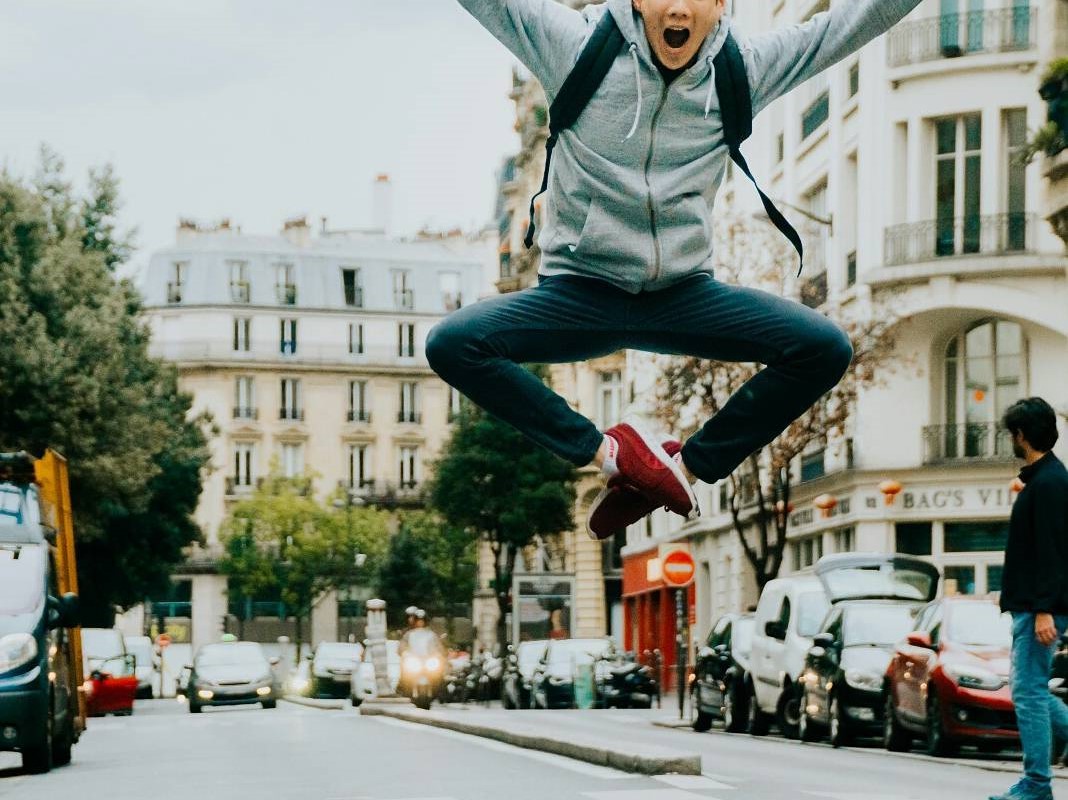A Portrait of Paris's Chinese-French Community

During World War I, thousands of Chinese from the Wenzhou province fled to France for safety. Many settled in Paris (mostly in Belleville), where they toiled to create better futures for their families. The first generation focused mainly on survival. The second, thanks to the foundation built by their parents, usually had a little more freedom over their lives.
On August 21, 2017, I came to Paris with a pocket of French phrases and a sea of expectations. I was not here to travel. I was not here to play. I had not even looked deep enough into the school I would be attending for the year to be able to say that I came for the studies. In truth, the prompt for my year abroad in the 'city of lights' was none other than my dad's family. For three generations, after my grandparents' escape during the later half of the 1900 Chinese Diaspora, the Wong family lived, grew and flourished in the heart of Paris. Two parents and eight children evolved into a family so large that entire restaurants would occasionally have to be booked just to fit a gathering. My dad sometimes described it as the Chinese version of "My Big Fat Greek Wedding" or, with his brow furrowed in mischief, "Like the mafia... But of a church." When I first arrived, I did not quite know where I would fit in among my 26 cousins and 50+ uncles and aunts. But, I wanted to see if I could find a place.
Up until this year, my interactions with my dad's side of the family could be recounted to times they visited us in New Jersey, or when we occasionally popped in Paris for a wedding. Now, I was thrown into the heart of their community. I attended their Wenzhonese church in Belleville, which, in some ways, doubled as a weekly family reunion as a large portion of the members consisted of people related by either blood, marriage or distant lineage. Then, every Sunday night, a few families ate dinner at my grandparents' house, where aunts and uncles gathered around a generous wooden table and discussed matters, gossiped, laughed and caught up late into the evening. Combined, the dialects spoken were a mix between Wenzhounese, French, Mandarin and a bit of English (I distinctly remember the disappointment spilling from one of my uncle's face when I confessed I only spoke two dialects). Over the year, two different families generously hosted me in their homes. As I observed my extended family, a pending question entered my thoughts.
A cousin's wedding. Pictured are a number of the cousins (quite a few are missing) and the grandparents in 2012. Image Credit: Alina WongAs with most immigrants, the younger Chinese generation assimilated into the new Parisian culture more easily than the first. My grandparents came to Paris in their 30's. My grandma was a fiery woman who, on the voyage from China years back, fought off other passengers on the overcrowded boat who wanted to drown her son to make more room for themselves. Even at 80-years-old, she had a sharp mind, but she did not learn French and remained locked in her own world. Of my aunts and uncles, the oldest few retained most of their Chinese culture, while one of my youngest aunts recently described herself as, "50% Chinese and 50% French." Lastly, I observed my cousins. From a distance, they were unmistakably Chinese. But upon speaking with them, I could not deny that their mannerisms, words, and overall way of relating to society painted a culture distinctly different from that held by an average Chinese and veered towards something far more European. Considering most were born and raised in Paris, this came as no surprise. But I wondered: Just how French do they really see themselves in comparison to their Chinese heritage? Furthermore, what does the comparison actually entail? To avoid sweeping stereotypes, I honed into one perspective.
Andrew Huang is the youngest of three boys. His oldest brother, Thomas, described him as, “autonomous, curious, tall (6''2'), stubborn and ambitious." He added, "when Andrew has to take the bus he will-- halfway to the bus station-- ask himself if he locked the front door correctly. But because he hates to waste time wondering, he'll run all the way home and back just to double check. This happens a lot, and the door is always locked, by the way." Thomas laughed.
"So... where are you from?" I asked Andrew.
This question only drew a pact, standard reply on the details of his origins. But as I probed further, one of Andrew's offhand comments struck me, "I think I am more French than Chinese. When I am at school, I never feel different. I sometimes even forget I am Chinese until someone points it out and causes me to double-take. Am I really Chinese? I don't even speak Chinese! It's quite awkward sometimes." Andrew further explained a difference he noticed in Chinese and French culture and why he felt he fell into the latter. He drew most of his observations from comparisons between friends at his local French school and those at his Chinese church. "But," he admitted, "When it comes to knowing Chinese culture, I am also sometimes influenced by stereotypes I see in the media."
"I see myself reflected in my French friends more than my Chinese ones."
Image Credit: Matthew HuangThrough the years, Andrew saw his Chinese friends struggling under immense pressure from their parents, particularly in relation to academics. Depictions of hard-working, bookish Chinese characters that he witnessed in the media only reinforced this observation. In contrast, he saw French culture as a lot more 'flexible.'
"When I think about French culture, I think about how free we are. We have a lot of time to run and play." Andrew pulled this from personal experiences with his friends at school, but especially in the way his parents raised him (notice how he uses 'we' in reference to French culture).
Although his parents are Chinese by origin, they decided to raise their children in less traditional ways. Andrew's parents offered their advice without applying the same kind of pressure in academics as the parents of his Chinese friends did.
"They guided me, but never forced me into a certain role. Right now, I am studying computer science at a school not recognized by the state. This would not be okay for traditional Chinese parents. Most would probably fear for their child's future. But honestly, I am doing something I love every day. It's crazy. I wake up every morning and really want to go to school. My parents don't worry, and neither do I." As Andrew saw it, his integration into French culture truly was due to the way his parents nurtured him. This, in turn, affected the way he viewed himself and how he wants to raise his own family in the future.
"I don't deny my culture, but I admit I am different from it."
Image Credit: Matthew HuangI tried to get some more comparisons: French food or Chinese food? French media or Chinese media? Andrew sighed in mock despair, "I can't decide! Can I say... both? To be honest, I just know this culture I have from my family and it's the way I grew up. I was born and raised in France; this is the only life I know."
The Chinese-French culture in Paris is prominent and unique. As seen through my family, both cultures can be blended into a point of near indistinguishableness in later generations. From the diverse foods they love to the multiple languages they speak, many of the third generation immigrants embody both Chinese and French culture. However, there are also stark differences, such as views on education, that they must choose between.
I am now six months into my year in Paris. Although I only took four classes the first semester, I would readily award another four credits onto my transcript just for the sheer amount of names, complicated family trees and stories I had to cram as well. In the process, I was privileged to glimpse into the distinct Chinese-French culture that resides in Paris, and furthermore form friendships with people within. When I return to my home university in Texas, my boasts will not surround an Instagram filled with pastries and poses in front of European architecture. I will more likely relay warm memories of talking about life with my aunt while she baked quiche in her kitchen and weekly French lessons I had with a kindhearted 86 year-old Chinese-French grandpa in the Wenzhounese church. I might laugh about the many times I had to call a forgiving cousin because I was lost in Paris and will definitely bring up details of those ever-so-often enormous and elaborately planned family gatherings.
But, if after that I still must mention the pain au chocolats and eclairs, there is no doubt I will shed a few tears in reminiscence over them too.
Image Credit: Matthew Huang



